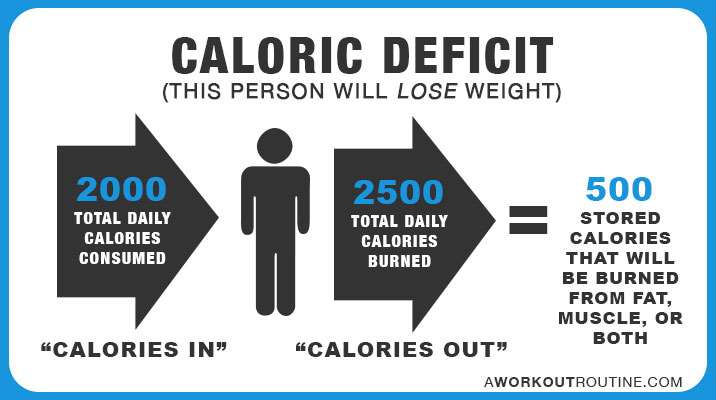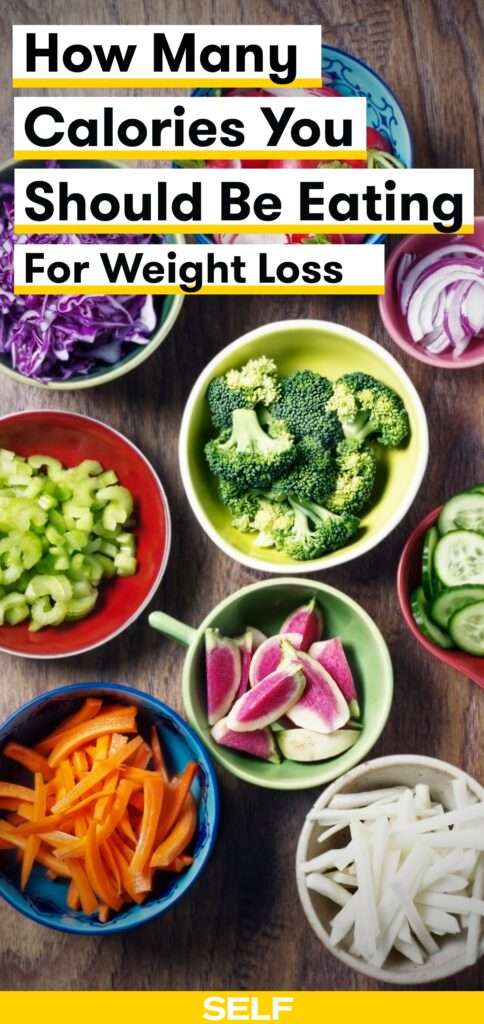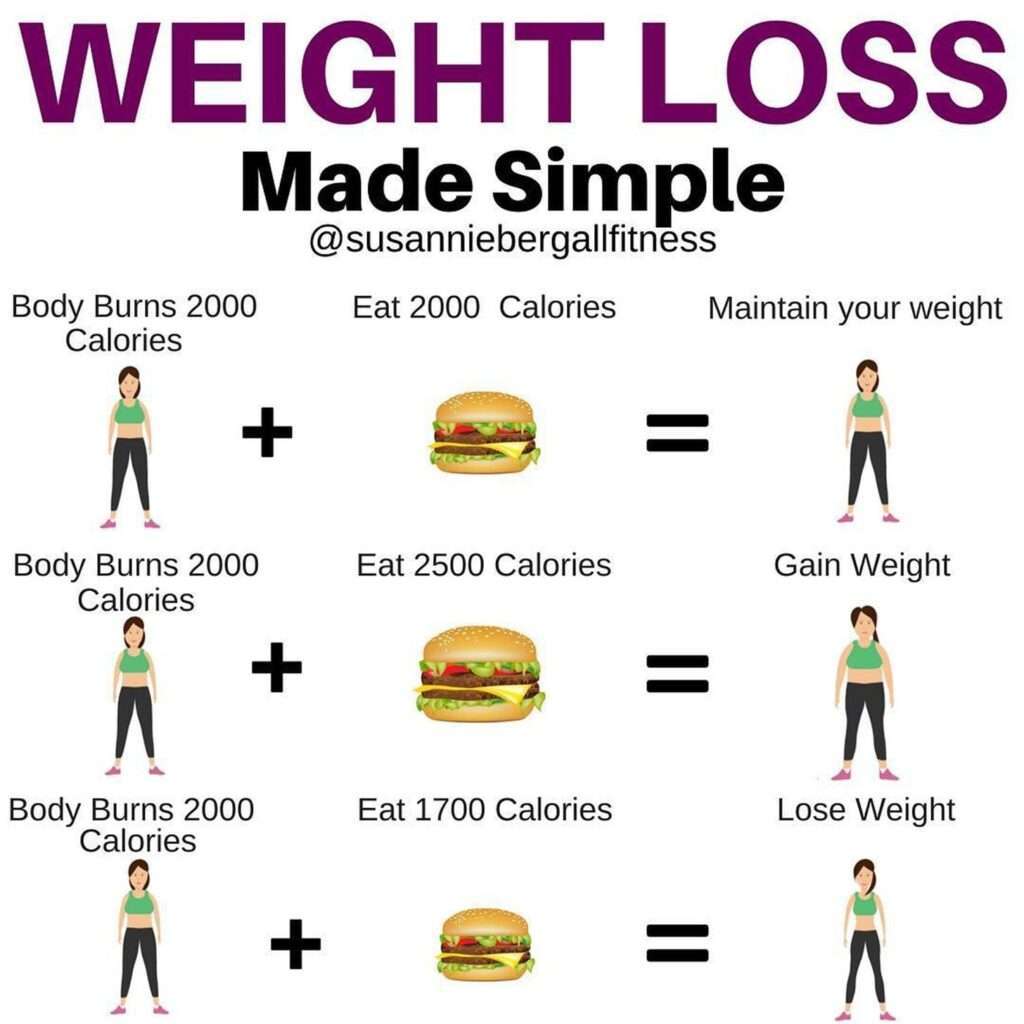? This is a common question many people have when starting their weight loss journey. In this article, we will break down the basics of calorie intake for weight loss and provide you with a simple formula to help you determine the right amount of calories for your goals. By understanding how many calories you should eat, you can create a healthy and sustainable plan to achieve your weight loss goals. Let’s get started!

Understanding Weight Loss
Losing weight is a common goal for many people, whether it’s to improve their health, boost their confidence, or simply feel better in their own skin. However, embarking on a weight loss journey can be overwhelming, especially when it comes to determining how many calories you should be consuming. In this article, we will explore the importance of calorie intake, factors that impact weight loss, and how to set realistic weight loss goals.
Importance of calorie intake
Calories are the units of energy that our bodies need to function. They are obtained through the food and beverages we consume. When it comes to weight loss, the simple principle is that you need to create a calorie deficit. This means consuming fewer calories than your body needs to maintain its current weight. By doing so, your body will be forced to tap into its stored fat reserves for energy, leading to weight loss.
Factors that impact weight loss
While creating a calorie deficit is essential for weight loss, it’s important to understand that several factors can impact the rate at which you shed pounds. Firstly, everyone’s metabolism is unique, meaning that some individuals naturally burn calories more efficiently than others. Age, gender, and weight also play a role in determining your caloric needs. Additionally, medical conditions and certain medications can affect your metabolism and overall weight loss progress.
Setting realistic weight loss goals
It’s crucial to set realistic weight loss goals that align with your individual circumstances and overall health. Rapid weight loss can be detrimental to your well-being, as it often leads to muscle loss and nutrient deficiencies. The general recommendation is to aim for a gradual weight loss of 1-2 pounds per week. This can be achieved through a calorie deficit of 500-1000 calories per day. By setting realistic goals, you increase your chances of long-term success and prevent unnecessary setbacks.
Calculating Caloric Needs
Now that you understand the importance of calorie intake and the factors that influence weight loss, let’s dive into how you can determine your specific caloric needs.
Basal Metabolic Rate (BMR)
Your Basal Metabolic Rate (BMR) is the amount of calories your body needs to perform basic functions at rest, such as breathing and circulating blood. This accounts for the majority of your daily caloric expenditure. Several formulas can be used to estimate your BMR, the most commonly used being the Harris-Benedict equation.
For men: BMR = 88.362 + (13.397 x weight in kg) + (4.799 x height in cm) – (5.677 x age in years) For women: BMR = 447.593 + (9.247 x weight in kg) + (3.098 x height in cm) – (4.330 x age in years)
Once you have calculated your BMR, you can then determine your Total Daily Energy Expenditure (TDEE) by factoring in your activity level.
Activity level and calorie expenditure
The level of physical activity you engage in on a daily basis greatly influences your total caloric expenditure. Sedentary individuals, such as those with desk jobs, generally require fewer calories than those who are highly active. To estimate your TDEE, simply multiply your BMR by a factor that corresponds to your activity level:
- Sedentary (little to no exercise): BMR x 1.2
- Lightly active (light exercise/sports 1-3 days/week): BMR x 1.375
- Moderately active (moderate exercise/sports 3-5 days/week): BMR x 1.55
- Very active (hard exercise/sports 6-7 days/week): BMR x 1.725
- Extremely active (very hard exercise/sports & physical job or 2x training): BMR x 1.9
Your TDEE represents the total number of calories you should consume in a day to maintain your current weight. To lose weight, you need to create a calorie deficit from this number.

Determining Calorie Deficit
Now that you have an understanding of your caloric needs, it’s time to determine the appropriate calorie deficit for weight loss.
Defining calorie deficit
A calorie deficit occurs when you consume fewer calories than your body requires to maintain its current weight. This deficit forces your body to utilize stored fat for energy, resulting in weight loss. It’s important to strike a balance, as too large of a calorie deficit can lead to muscle loss, decreased metabolic rate, and nutritional deficiencies.
Recommended calorie deficit for weight loss
It is generally recommended to create a calorie deficit of 500-1000 calories per day for healthy and sustainable weight loss. This equates to a weekly weight loss of 1-2 pounds, which is considered safe and attainable. It’s worth noting that those with a higher percentage of body fat can safely aim for a larger calorie deficit, while those who are already lean may need to be more cautious to avoid adverse effects.
Avoiding extreme calorie restrictions
While it may be tempting to drastically reduce your calorie intake to expedite weight loss, it is not recommended. Very low-calorie diets can lead to muscle loss, nutrient deficiencies, and a decrease in metabolic rate. Additionally, restrictive diets are often unsustainable in the long term, leading to rebound weight gain. It’s crucial to prioritize your health by adopting a balanced and nutritious approach to weight loss.
Factors Influencing Caloric Needs
While formulas and equations can provide a good starting point for determining your caloric needs, it’s important to remember that individual variation exists. Several factors can influence your caloric needs, and it’s essential to take these into account when creating a weight loss plan.
Age, gender, and weight
Age, gender, and weight are fundamental factors in determining your caloric needs. Generally, as we age, our metabolism naturally slows down. This means that older individuals tend to require fewer calories than younger ones. Men also typically have higher energy requirements compared to women due to their higher muscle mass. Lastly, your current weight plays a role in determining how many calories you burn at rest, as larger bodies require more energy to maintain.
Metabolism and body composition
Metabolism refers to the chemical processes that occur within the body to convert food into energy. Some individuals naturally have a faster metabolism, meaning they burn calories more efficiently. On the other hand, those with a slower metabolism may have a harder time losing weight. Body composition, including the percentage of muscle and fat, also influences metabolism and caloric needs. Muscle mass is more metabolically active than fat, meaning that individuals with more lean muscle mass tend to have a higher metabolic rate.
Medical conditions and medications
Certain medical conditions, such as hypothyroidism or polycystic ovarian syndrome (PCOS), can affect your metabolism and overall energy expenditure. Medications, such as antidepressants or corticosteroids, may also influence your weight and caloric needs. If you have any underlying health conditions or take medications, it’s important to consult with your healthcare professional to determine the best approach to weight loss.

Safety and Health Considerations
When it comes to weight loss, safety and health should always be a top priority. Before embarking on any weight loss journey, it’s crucial to consult with a healthcare professional, such as a registered dietitian or doctor.
Consulting with a healthcare professional
A healthcare professional can provide guidance and support throughout your weight loss journey. They can help determine the appropriate caloric intake for your specific needs, taking into account any underlying health conditions or medications. Additionally, they can provide personalized advice to ensure you are meeting your nutritional needs and avoiding any potential deficiencies.
Monitoring weight loss progress
It’s important to monitor your weight loss progress regularly. This can help you track your success and make any necessary adjustments to your caloric intake. However, it’s worth noting that weight loss is not always linear. There may be periods of plateauing or slower progress, which is normal. Instead of solely relying on the scale, consider other measurements of progress, such as how your clothes fit or improvements in energy levels and overall well-being.
Balanced and nutritious diet options
While calorie intake is important for weight loss, it’s equally important to focus on the quality of the calories you consume. A balanced and nutritious diet that includes a variety of whole foods, such as fruits, vegetables, lean proteins, whole grains, and healthy fats, is key for optimal health and sustainable weight loss. Avoid falling into the trap of heavily restricting certain food groups or following fad diets, as they may lead to nutrient deficiencies and an unhealthy relationship with food.
Monitoring Caloric Intake
To effectively manage your weight loss journey, it’s essential to monitor your caloric intake. Tracking your food and calorie intake can provide valuable insights into your eating habits and help you make more informed choices.
Tracking food and calorie intake
There are several methods available for tracking your food and calorie intake. Online food diaries, smartphone apps, or even simple pen and paper can be used. Write down everything you eat and drink throughout the day, including portion sizes. This will allow you to gain a better understanding of your eating patterns and identify areas for improvement.
Using smartphone apps or food journals
Smartphone apps have gained popularity for their ease of use and ability to track not only calories but also macronutrients and other nutritional information. Some popular apps include MyFitnessPal, Lose It!, and Cronometer. If you prefer a more traditional approach, keeping a food journal can also be effective. Find a method that works best for you and stick with it consistently.
Understanding portion control
Portion control is a critical aspect of managing your caloric intake. Even if you consume healthy foods, eating excessively large portions can hinder weight loss progress. Familiarize yourself with proper portion sizes and practice mindful eating. Pay attention to hunger and fullness cues and aim to eat until satisfied, not overly stuffed. Over time, portion control will become second nature, helping you maintain a healthy caloric intake.

Adjusting Caloric Intake
Weight loss is not a linear process, and it’s common to experience plateaus or fluctuations along the way. To overcome these challenges and sustain weight loss, it’s important to periodically reassess your caloric needs and make necessary adjustments.
Plateauing and weight loss plateaus
Weight loss plateaus occur when your body adapts to a lower calorie intake and your weight loss stalls. This can be frustrating, but it’s normal. To break through a plateau, consider making changes to your exercise routine or reassessing your caloric intake. Gradually increasing your physical activity level or adjusting your caloric deficit by a small amount can reignite weight loss progress.
Reassessing calorie needs periodically
As your weight changes, so do your caloric needs. It’s essential to periodically reassess your caloric intake to ensure you are still creating a calorie deficit. As you lose weight, your metabolic rate may decrease, meaning you need fewer calories to maintain your new weight. Repeating the calculations for BMR and TDEE every few months can help you stay on track and continue making progress.
Making adjustments for sustained weight loss
Sustainable weight loss is not about reaching a specific number on the scale, but rather about maintaining a healthy lifestyle long term. As you approach your weight loss goals, gradually increase your caloric intake to match your new energy needs. This will help you transition from a weight loss phase to weight maintenance. Focus on consuming a balanced and nutrient-dense diet, engaging in regular physical activity, and practicing mindful eating habits.
Seeking Professional Guidance
Weight loss can be a complex process, and seeking professional guidance can greatly improve your chances of success. Registered dietitians and nutrition professionals can provide personalized advice, education, and support throughout your weight loss journey.
Working with registered dietitians
Registered dietitians are trained professionals who specialize in nutrition and can assist you in creating a personalized weight loss plan. They have the knowledge and expertise to address your specific needs and help you navigate the vast amount of information available. A dietitian can work with you to develop a meal plan, provide ongoing support, and help you stay accountable on your weight loss journey.
Nutrition counseling and support
Nutrition counseling is an effective tool for weight loss, as it allows you to address any emotional or psychological factors that may be contributing to your eating habits. A counselor can help you develop a healthy relationship with food, explore your personal motivations for weight loss, and provide strategies for overcoming obstacles. By addressing the root causes behind your eating behaviors, you can develop sustainable habits for long-term success.
Personalized meal plans
Meal planning is an important part of any weight loss journey. A personalized meal plan can take the guesswork out of eating, making it easier to stick to your caloric goals. A registered dietitian can create a meal plan tailored to your individual preferences, dietary restrictions, and caloric needs. This ensures that you are not only meeting your weight loss goals but also enjoying delicious and nutritious meals along the way.

Importance of Exercise
While calorie restriction is an integral part of weight loss, incorporating regular exercise into your routine can further enhance your results and overall health.
Combining calorie restriction with exercise
Combining calorie restriction with exercise creates a greater calorie deficit, helping you achieve weight loss more efficiently. Exercise helps burn additional calories and build and maintain muscle mass. It also offers numerous other health benefits, such as improved cardiovascular function, increased energy levels, and reduced stress.
Types of exercise for weight loss
Engaging in a variety of exercises can help promote weight loss while also keeping you motivated and challenged. Both cardiovascular exercises, such as running, swimming, or cycling, and strength training activities, including weightlifting or resistance band exercises, contribute to weight loss by increasing calorie expenditure and improving body composition. Aim for a balanced exercise routine that includes both cardiovascular and strength training exercises.
Calories burned through physical activity
The number of calories burned through physical activity varies depending on the type and intensity of exercise, as well as factors such as body weight and duration. Many fitness trackers and smartphone apps offer estimates for calories burned during various activities. However, it’s important to remember that these are just estimates and can vary between individuals. Focus on staying active and finding activities you enjoy, rather than solely relying on calorie burn calculations.
Conclusion
Embarking on a weight loss journey can be daunting, but understanding your caloric needs and implementing a balanced approach will set you up for long-term success. By creating a calorie deficit, setting realistic goals, monitoring your progress, and seeking professional guidance when needed, you can achieve sustainable weight loss. Remember to prioritize your health and well-being, choosing nutrient-dense foods, and incorporating regular exercise into your routine. With dedication, patience, and the right tools, you can achieve your weight loss goals and maintain a healthy lifestyle for years to come.
